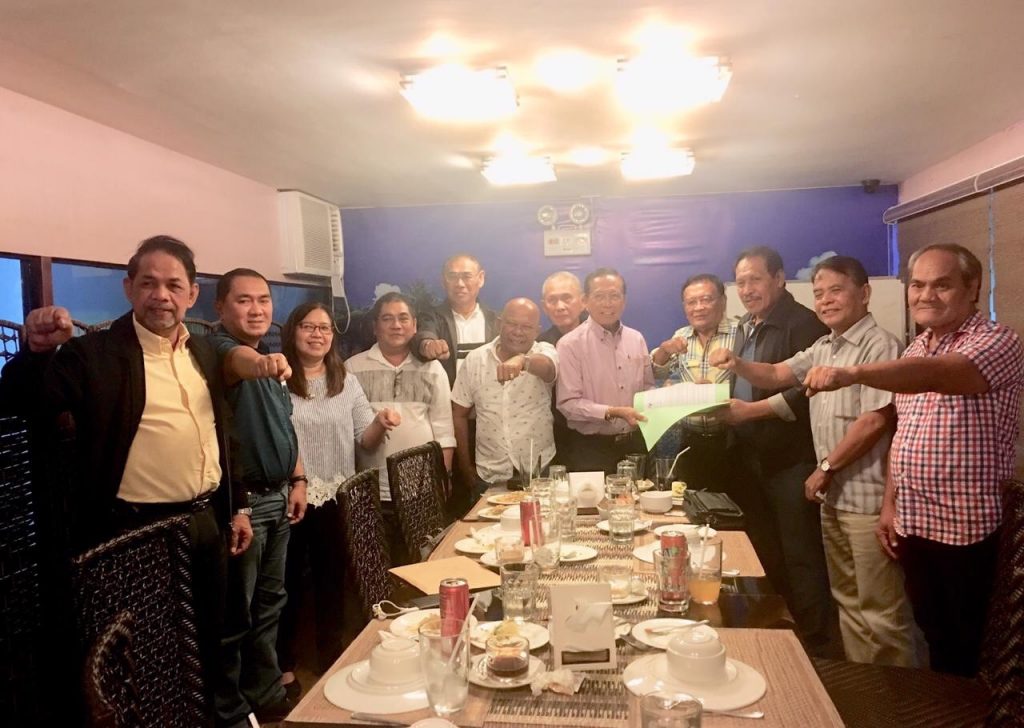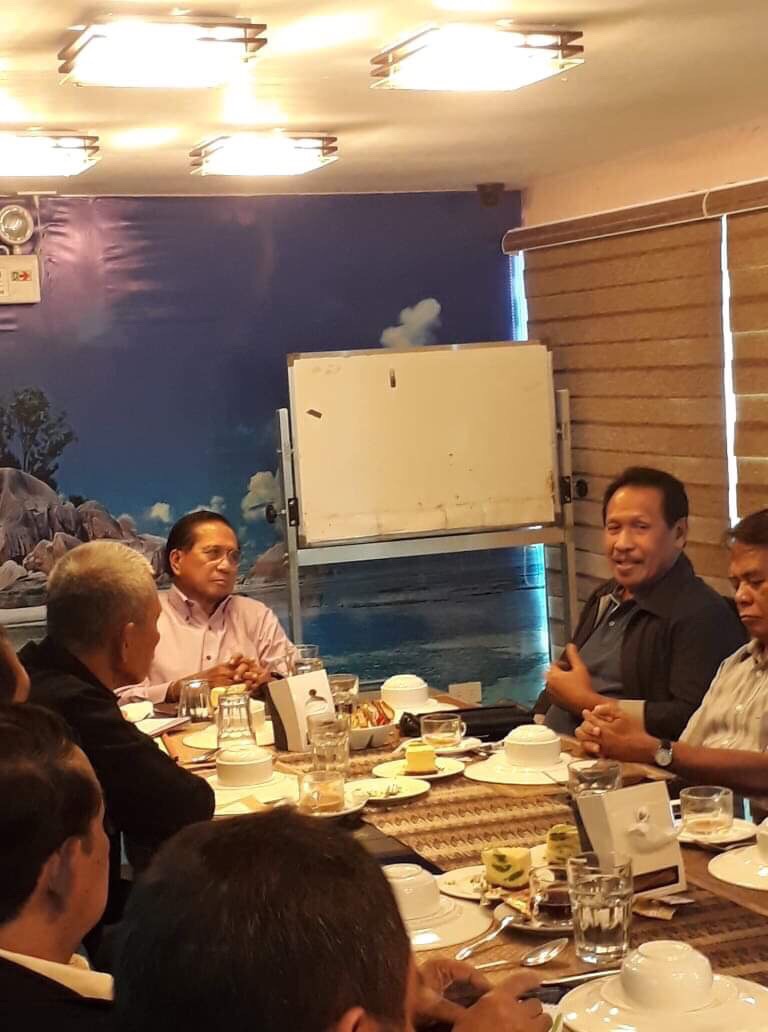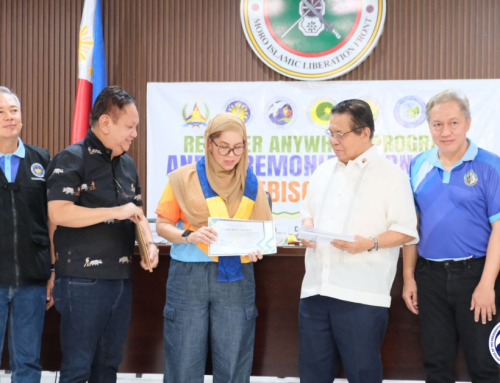DAVAO CITY (October 30, 2018) — Top officials of the Moro National Liberation Front (MNLF) met with Presidential Peace Adviser Jesus Dureza here to pledge their full support for the ratification of the Bangsamoro Organic Law (BOL) through the implementation of a strategic information, education and communications (IEC) campaign in their communities.
“The MNLF is committed to help the administration of President Rodrigo Duterte by supporting the BOL and campaigning for (its ratification in) the plebiscite,” MNLF Central Committee Chair Yusoph Jikiri told Dureza during the meeting yesterday.
In response, Dureza acknowledged the MNLF’s strong commitment to help the national government in creating a greater level of public awareness on the landmark measure.
“I am very pleased with the MNLF’s determined efforts to help the Duterte administration in generating a groundswell of support for BBL and ensure its ratification,” he said.
In particular, Dureza lauded the MNLF Central Committee for issuing a resolution declaring the organization’s unequivocal support for the BOL’s ratification and eventual implementation.
The resolution was issued during the MNLF’s General Assembly held last October 7 in Indanan, Sulu.
Monday’s dialogue was a follow up to a conversation between Dureza and members of the MNLF Central Committee held earlier this month in Davao City.
During that meeting, it was agreed that the MNLF, in partnership with the Office of the Presidential Adviser on the Peace Process (OPAPP), will develop and implement a multi-stakeholder IEC campaign within the organization’s areas of coverage.
“The MNLF, under the leadership of Chair Jikiri, has over the years been a reliable partner of the national government in sustaining the gains of peace in Mindanao,” Dureza said.
“We hope to continue strengthening this partnership in the coming years,” he added.
Dureza said the BOL will not favor any particular group or organization, emphasizing that it is the embodiment of all signed agreements between the Philippine Government and the various Moro fronts in Mindanao.
“The BOL’s main feature is its inclusiveness in which everyone is part of the peace and development process,” he said.
“No one should be left behind,” he added.
Dureza said the BOL is envisioned to be “a platform for convergence” in which all stakeholders – regardless of tribe, ideology, or religion – will partake of the benefits of economic development.
The Government of the Philippines and the MNLF signed a final peace agreement on September 2, 1996 putting an end to the 24-year armed struggle of the rebel organization.
On March 27, 2014, the Comprehensive Agreement on the Bangsamoro (CAB) was forged between the national government and the Moro Islamic Liberation Front (MILF), bringing closure to decades of armed hostilities in Mindanao.
President Rodrigo Duterte signed the BOL into law on July 27, 2018, a realization of his commitment to finally address the historical injustices against the Bangsamoro people.

Meanwhile, in Zamboanga City, representatives of the MNLF and OPAPP sat side by side as they participated in a training workshop dubbed “Speakers Training on the BOL.”
Organized by OPAPP, the workshop is part of the series of activities under the Joint GPH-MNLF IEC campaign which aims to capacitate members of the MNLF as key resource persons on the law.
During the training, MNLF Secretary General Abdul Kong Sahrin urged his comrades in the MNLF to help redefine the organization’s vision in relation to the BOL.
“We need to redefine our vision and (determine) how to pursue it,” Sahrin said.
The top MNLF leader said the MNLF and the MILF share a common vision for the Bangsamoro and should look at each other as partners.
“This partnership is established on the principle of convergence. It is the preferred political option,” Sahrin said.
He said the BOL is “a superior version” of all previous peace agreements signed.
“The BOL is ARMM-plus-plus. There is no reason for you not to support it,” Sahrin said.
For his part, MNLF deputy secretary general Rasul Rasdi said the peace process “does not only mean the signing of peace agreements” but also “the building of a socio-economic structure.”
“The Moros have suffered for many years. We therefore need to focus on economic development so that everyone enjoys (the benefits of growth),” Rasdi said. ###












